Educational Theatre class plan for Greek History.Hi, Everyone, today I would like to share a play plan titled Let’s be a bird of Aristophanes, a play that explores Greek history. This play is designed for 11th grade. Students will recite and act out lines from one of Aristophanes' plays, Orhithe, to express their feelings through metaphor. They will also learn typical plays from ancient Greek comedy, full of witty lines and clever puns. 1. Students will sit in a circle around the teacher. 2. The teacher summarizes the Greek period's plays and explains what achievements Aristophanes made as the first Greek comic playwright and what influence he had on theatre. 3. The teacher will explain “The Birds” from Aristophanes’ work. 4. The teacher explains parabasis, a section of Greek comedy in which the chorus addresses the audience directly with commentary on various topics. 5. The teacher will hand out to each student a piece of paper with a script written on it, including the representative opening and parabasis passages from Aristophanes' The Birds, and finally important passages from which students can learn about metaphors in the play. 6. The teacher will have students monologue this script. 6. The teacher asks students to play four roles. For this purpose, students will be divided into four groups and assigned parts. (Euelpides, Pisthetaerus, Hoopoe, Parabasis) The teacher will Give each group time (30 minutes) to practice their lines for their role. 8. The teacher will first help the students act out the passages given according to the roles of the four groups. After the teacher has made sure the students have completed their roles in each group, the teacher will read the following lines from the Hoopoe aloud to the students to teach metaphors from the play. Hoopoe: "You have to work to learn the whistles, nods, winks, and signals that birds give to each other." The teacher will now ask each student to act out the Hoopoe's lines as if they were birds. Explain that at this time, you can use props such as paper, tissue, chairs, and colored paper nearby. 11. Following the teacher's instructions, students will each metaphorically express the appearance of a bird according to Hoopoe's lines. And encourage them to discuss with each other what emotions each signal represents. For example, one student whistled in a sad tone. He cranes his neck, flaps his wings, and whistles like a bird. Other Students will write down how they are feeling on a piece of paper in front of them. At the end, the teacher will ask all students to imitate the bird they imagine. Students will all fly according to the bird's habits and how they envision the bird to be. Theater is very powerful in our society because of its culture and history. So, it will continue to become more critical over time. In this respect, I chose Greek plays that significantly influenced modern theater and focused on the first of them, Aristophanes' The Bird. When I read his play, I was very interested. It is a sophisticated play that is not at all out of place, even for modern people to read and is an exciting play that contains satire on social conditions that is almost similar to modern reality. I condensed the entire plot of this play into a more predictable form and reorganized the paragraphs. And I planned to present this in a format that students could read and act. Later, as I wrote down this plan, I was happy to see the students taking the form of birds and flying around. I think their happy appearance is exactly what Aristophanes, a Greek playwright, wanted long ago. Thank you
0 Comments
Leave a Reply. |
Myungja Anna KohArtist Categories
All
Archives
July 2024
|
Proudly powered by Weebly

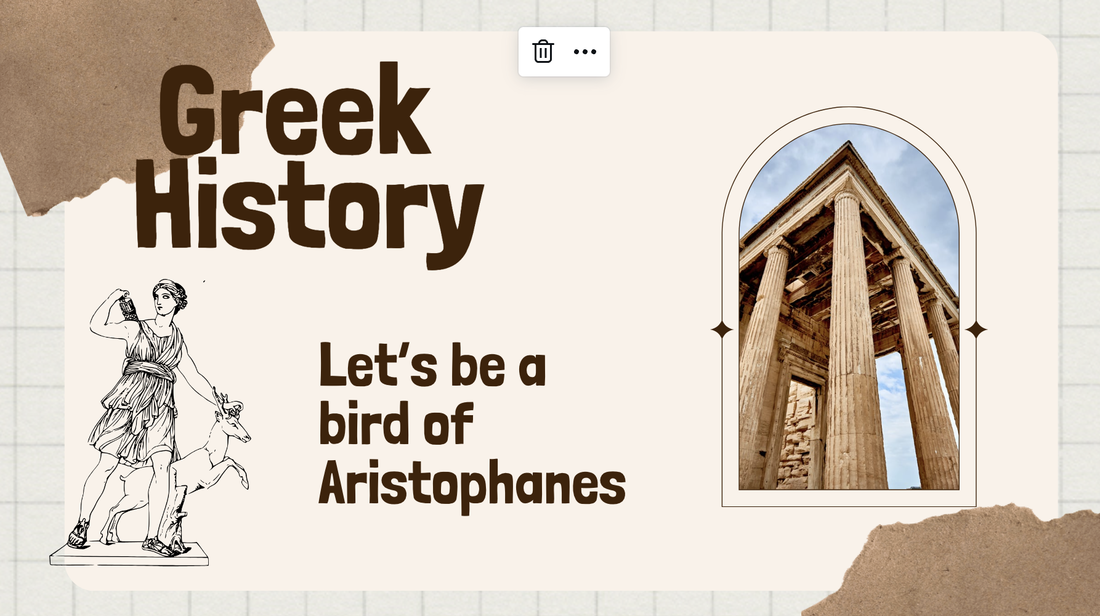
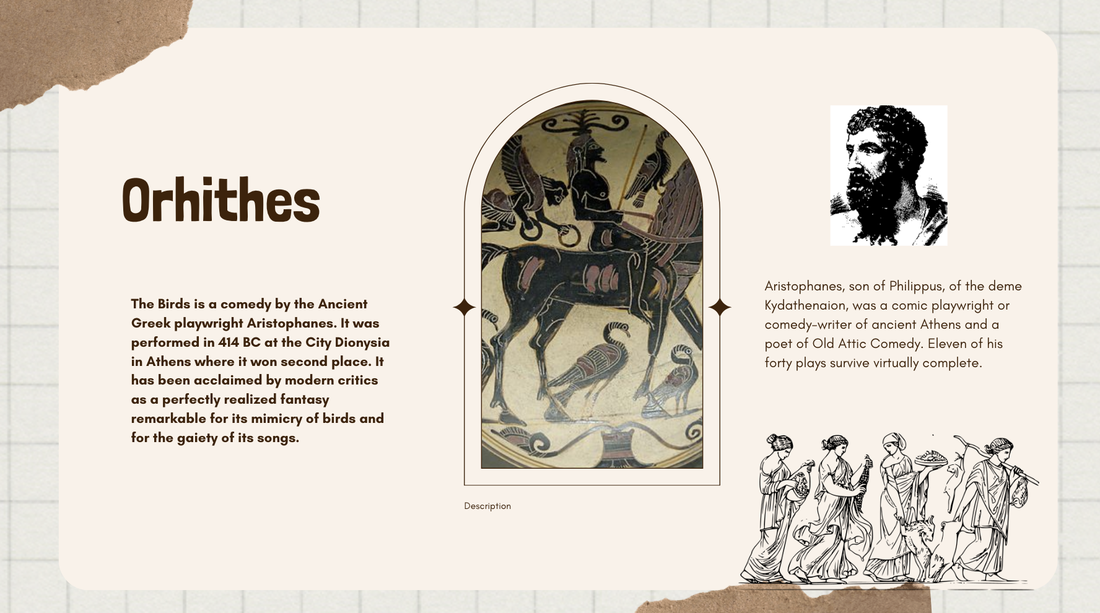
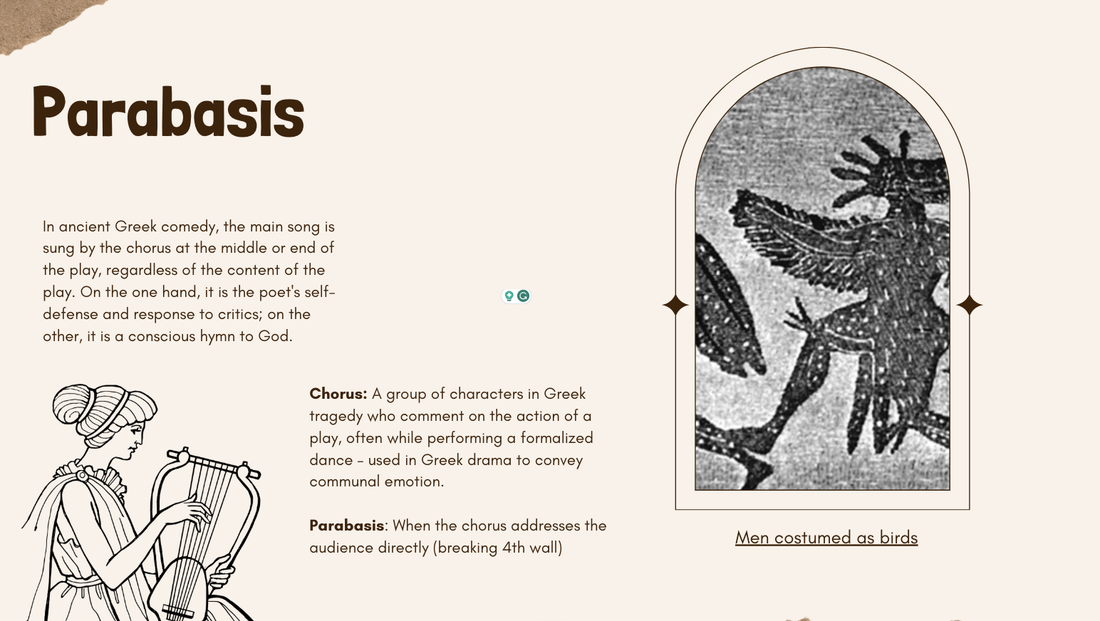
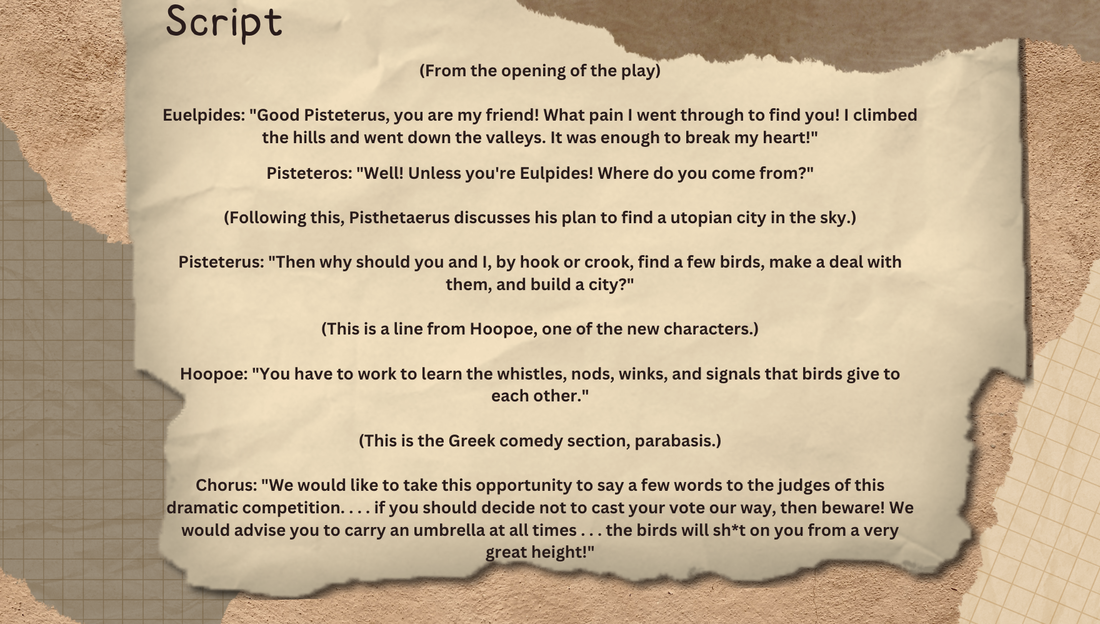
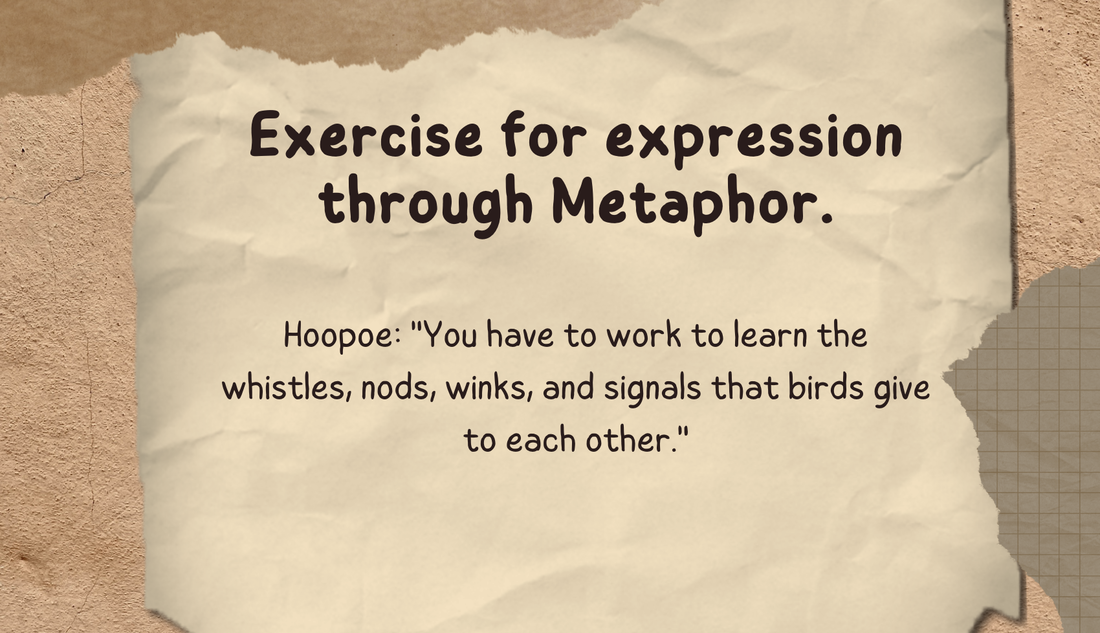
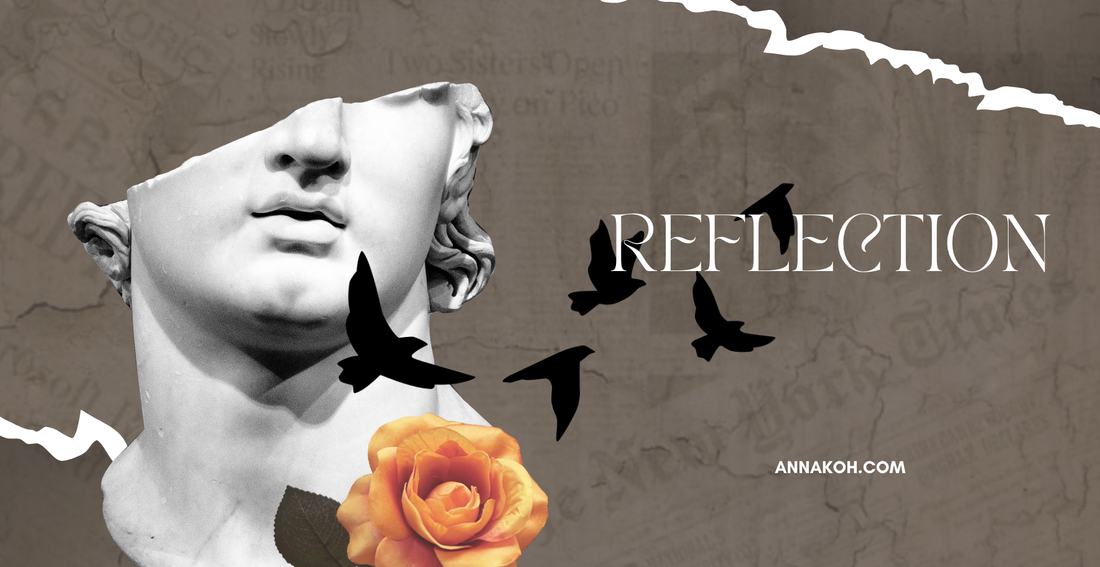
 RSS Feed
RSS Feed